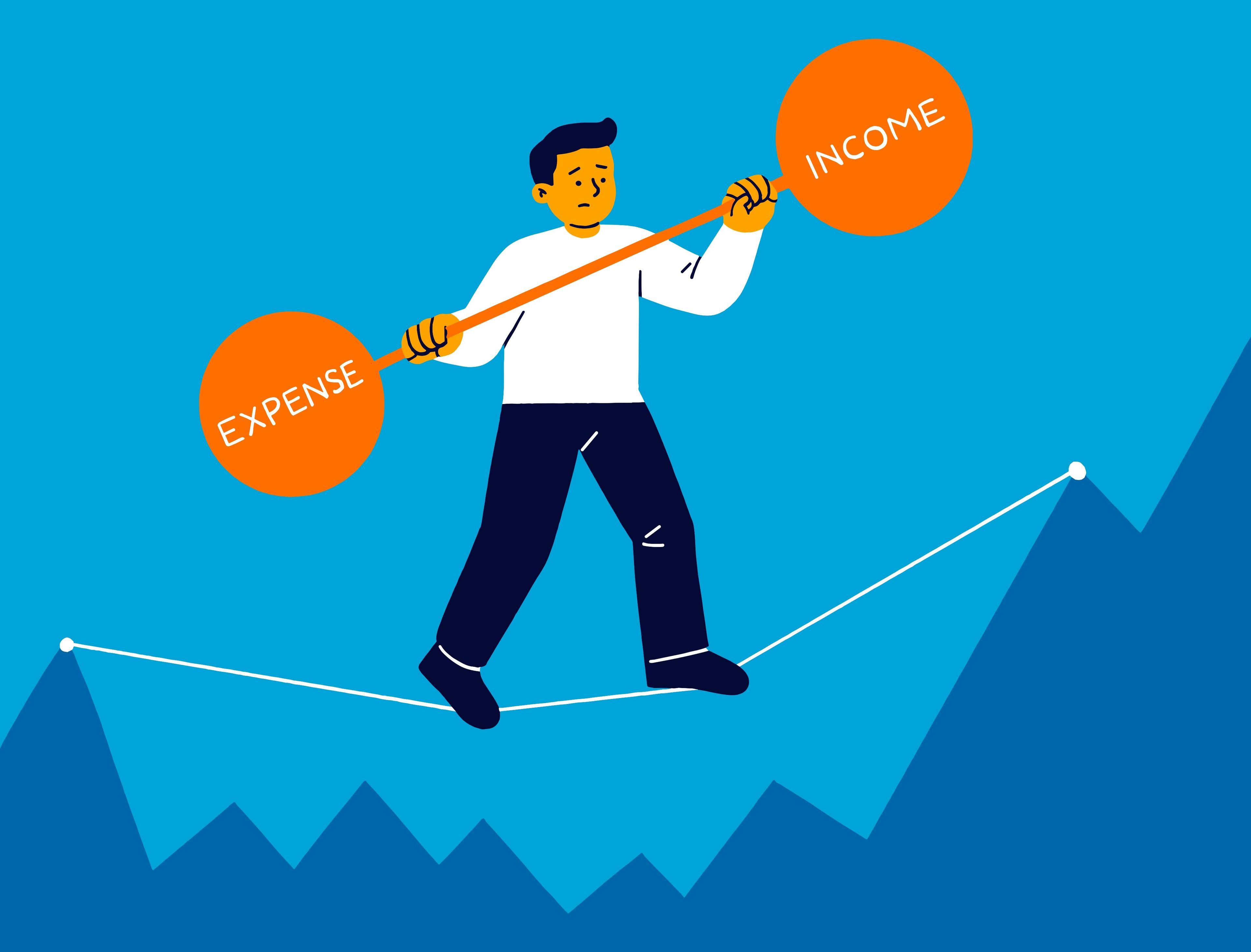Buying a home often feels like the moment you cross into full adult territory. You sign a thick stack of documents, commit to a loan that will probably outlast your current phone, job, and maybe even your car, and learn more about interest rates in a week than you did in your entire teenage years. In the middle of that, one more decision quietly appears in the conversation. The banker or agent asks if you would like mortgage coverage added to your loan, and suddenly you are faced with another choice that sounds important but slightly vague.
Many people say yes because it feels responsible. Others say no because the premium looks like yet another bill on top of legal fees, renovation costs, and moving expenses. The real issue is not whether you are a careful or careless person. The real issue is how your financial situation shapes your actual need for mortgage coverage. Once you see that connection clearly, the decision feels far less emotional and far more practical.
At its core, mortgage coverage is a simple idea. Different banks and insurers call it different things. You might see names like mortgage life insurance, mortgage reducing term policy, or some rider attached to another plan. Whatever the label, the purpose is similar. If you pass away, or sometimes if you suffer a serious covered event, the policy steps in to pay off some or all of the remaining mortgage. The bank gets its money. Your family does not have to scramble to sell the house or keep up with payments when your income is no longer there.
That detail is crucial. Mortgage coverage is not really about protecting the building. The bank already has the property as collateral. It is mainly about protecting the people who share your home and rely on your income. When you strip it down, the question is not whether mortgage coverage is automatically good or bad. The question is more direct. Given your financial situation, would anyone struggle to keep this home if you were not around or could not work.
To answer that properly, you need a quick snapshot of your own finances. Think of it as a simple dashboard rather than a complicated spreadsheet. First, look at your income stability. Are you on a stable salary with a long term contract, or do you work on a freelance or commission basis where your earnings jump up and down every month. A steady paycheck does not erase risk, but it does change the type of risk. A more volatile income makes any large fixed payment, including your mortgage, more dangerous if something goes wrong.
Next, consider your total debt. Add your mortgage to any car loans, student loans, personal loans, and unpaid credit card balances. If you are buying jointly, factor in your partner’s major debts too. A household that is already stretched across multiple loans has less room to absorb shocks. A sudden loss of income in that situation can quickly turn a manageable mortgage into a serious threat.
Then, look at your savings and investments. Ask yourself how many months of living expenses you could cover if income stopped. Check whether your money is mostly sitting in accessible accounts or locked in long term products you cannot touch without penalties. Someone with several months of emergency savings and a basic investment portfolio is in a stronger position than someone who lives almost from paycheck to paycheck.
Finally, think about dependents. Children, a non working spouse, elderly parents, or even siblings who share your home and depend on your higher income all matter. The more people rely on you to keep that roof over their heads, the more serious the impact if your income suddenly disappears.
When you put all these pieces together, it becomes clearer how your financial situation interacts with your need for mortgage coverage. Tight finances, high debt, and heavy dependence on one income create a very different picture compared to a household with strong savings, multiple income streams, and modest obligations.
Imagine a common scenario for many first time buyers. You stretched your budget to afford this home. The monthly mortgage payment takes a big slice of your pay. You have some savings, but not a huge buffer. There may be a car loan, an education loan, or a couple of lingering credit card balances. In this world, mortgage coverage can feel like an extra burden at exactly the moment you are trying to keep costs under control.
Yet this is precisely the kind of situation where mortgage coverage can matter most. If you pass away or suffer a serious illness, your family does not have much financial cushion. They might struggle to keep up with mortgage payments long enough to sell the property calmly. A rushed sale can force them to accept a lower price, or in a slow market they may wait months without relief. In this context, a policy that clears the loan or significantly reduces it can prevent the worst case scenario of losing both you and the home in a short period.
Now consider the opposite scenario. You have a comfortable emergency fund that covers six to twelve months of expenses. You have been investing consistently, and over time you have built some diversified assets. Your mortgage payment fits easily into your monthly budget. You and your spouse both earn stable incomes, and you are not carrying high interest debt on the side. In this setting, your financial situation is already doing part of the job that mortgage coverage is designed to perform.
If something happens to you, your spouse might still be able to handle the mortgage with their income, supported by savings and investments if necessary. The family could choose to sell the property at the right time, not in a panic. Here, a separate mortgage policy becomes more of a preference than a necessity. Some people like the idea that the outstanding loan disappears instantly in a claim. Others prefer to rely on a broader life insurance plan that covers income replacement and debt together or to lean on their savings.
Being single often makes people wonder whether mortgage coverage is needed at all. If you bought the property solely in your name, have no dependents, and no one else signed the loan, the bank will usually recover the outstanding amount from your estate. The property may be sold, the loan cleared, and any remaining value passed on to your beneficiaries. In such a case, heavy mortgage specific cover may not be the main priority. You might focus more on protecting your own income while you are alive through disability or critical illness plans, especially if your ability to earn is your biggest asset.
However, the picture changes if your parents helped you by co signing, or if a partner or sibling lives with you and cannot easily take over the mortgage payment. The same change happens when you co borrow as a couple and one partner earns significantly more. In these situations, your mortgage is not just your personal loan. It is tied directly to other people’s financial stability. A policy that clears or reduces the loan if something happens to one borrower can prevent the surviving co borrower from being forced to move or downsize in the middle of grief.
Income type also matters. If you work as a salaried employee in a relatively stable company or in the public sector, the risk of your income disappearing overnight is lower. You still face health and life risks, but job loss may come with notice and some form of compensation. If you are self employed, commission based, or part of the gig economy, your income often swings more dramatically and employer sponsored benefits may be minimal or nonexistent. In that case, your protection strategy needs to be wider. You might combine emergency savings, income protection, and health coverage, and consider how mortgage coverage fits into that overall plan as an extra layer that secures your largest fixed expense.
The stage of your mortgage journey also shapes your needs. At the beginning, your outstanding loan is at its highest and your equity in the property is at its lowest. If you lose your income early, it is much harder to recover and much more stressful for your family. Many mortgage policies are structured to mirror this pattern by starting with high coverage that gradually reduces as you pay down the loan. In the middle years, your salary may have grown, your savings may look healthier, and your debts may be better managed. The same coverage you bought at the start may no longer match your situation, and you may want to review whether you are overpaying for a level of protection you no longer need or missing protection in other areas like education funding or retirement.
Towards the end of the loan, the house itself becomes a kind of safety net. The remaining debt is small compared to the property’s value. If something happened to you at that stage, your family could likely sell the home and clear the loan with less difficulty, possibly even freeing up a significant amount of equity. At that point, it might make more sense to shift your focus from mortgage specific cover towards securing long term retirement income or healthcare costs.
Existing policies can change the entire calculation. Many people have life insurance through their employers or personal term plans they bought earlier. If these already provide enough money to support your dependents and cover major debts, an additional mortgage specific plan may overlap with what you already have. Banks often encourage customers to buy their in house mortgage coverage products together with the loan because it is convenient and profitable for them. Convenience, however, does not guarantee value. Sometimes, buying an independent policy or increasing your existing term coverage can be more flexible and cost effective.
On the other hand, relying entirely on employer provided coverage can be risky if you plan to change careers, take a break from work, or move into self employment. The moment you leave your job, that coverage usually disappears. If your long term plan includes a big shift later, it can be wiser to secure a portable policy that is not tied to any one employer.
The most practical way to think about your need for mortgage coverage is to zoom out and look at your entire protection picture. Add together your life insurance, disability insurance, critical illness cover, and accessible savings. Then ask yourself a simple but honest question. If I were not here, or if I could not work for a long time, could my family reasonably continue living in this home without being forced into a rushed sale or severe lifestyle cuts. If the answer feels uncertain or clearly negative, mortgage coverage or additional life insurance may be worth serious consideration. If the answer feels solid, you have more flexibility to decide whether a mortgage specific policy is still something you want.
You do not need to be a finance expert to make a sensible decision. You just need to be honest about your numbers and your responsibilities. If your mortgage is large compared to your income, your savings are thin, your dependents rely heavily on you, and your job or health circumstances carry meaningful risk, mortgage coverage acts more like a stabilizing structure around your life choices than an unnecessary add on. If your mortgage is manageable, your household has strong and diversified income, your savings are robust, and your existing coverage is adequate, you can treat mortgage coverage as one option among many, not an urgent requirement.
In the end, the connection between your financial situation and your need for mortgage coverage is straightforward. The more fragile your base, the more that policy behaves like scaffolding that keeps everything upright while you build stability. The stronger your base, the more freedom you have to design a protection plan that suits your values, your goals, and your family’s needs rather than simply accepting a default product offered at the bank counter.
This decision is not about fear. It is about matching tools to reality so that your home feels like a place of security rather than a loan that dictates every choice you make. When you understand your own finances clearly, mortgage coverage becomes just one more lever you can pull or leave alone, instead of a confusing checkbox on a busy day of paperwork.















